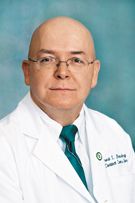Editorial: One health, one team
Last week I attended the National Academies of Practice annual forum in Alexandria, VA. This year's theme was "One Health. One Team."

Last week I attended the National Academies of Practice annual forum in Alexandria, VA. This year's theme was "One Health. One Team." One health "is a concept recognizing that human, animal and environmental health are inextricably linked," says Laura Kahn, MD, MPH, MPP, FNAP, a research scholar at Princeton University and a keynote speaker at the forum. The One Health, One Team approach "has the potential for developing inter-professional relationships between professional groups working across the inter-sections of care delivery," says Scott Reeves, PhD, MSC, PGCE, a professor of social and behavioral sciences at the University of California San Francisco.
For far too long, it seems we optometrists have worked in a vacuum. We approached the eyes and visual system as a stand-alone entity. Our expanding scope of practice requires us to interact in ever increasing amounts with other healthcare professionals. We are no longer just concerned with the eyes. We are growing ever more concerned with the body as a whole: the ocular effects of systemic disease, the ocular side effects of systemic medications, and the systemic ramifications of ocular findings.
Yet after attending this meeting I came away with the distinct impression that even those steps aren't enough. For my entire career, it seems our profession fought for the right to treat ocular disease, and the emphasis in our training has been in that arena. While that emphasis is absolutely necessary and proper, we need to expand our thinking beyond simply treating ocular disease and become concerned with preventing ocular disease. Treating ocular disease is intellectually and financially rewarding, yet might it actually be better for our patients if we discussed their risk factors for ocular disease well in advance of its development.
For instance, let's talk about contact lens overwear with our patients before they develop that infectious corneal ulcer. Let's talk to them about smoking and the increased risk of cataract formation and ARMD. Let's talk to our diabetic patients about their blood glucose control, and talk to our hypertensive patients about their blood pressure before the retinopathy associated with these conditions develops.
"Medicine and dentistry have moved heavily into the wellness area. We ODs need to make that move as well," says Rick Weisbarth, OD, FAAO, and president of the National Academy of Practice in Optometry. Treating ocular disease is very stimulating and satisfying, but preventing ocular disease is in the long run in the best interest of our patients. As a whole, optometrists are excellent patient advocates. Advocating health and wellness for the whole person-and not just their ocular health-is in the best interest of our patients, and what is in the best interest of our patients is always in the best interest of our practice and our profession.
Newsletter
Want more insights like this? Subscribe to Optometry Times and get clinical pearls and practice tips delivered straight to your inbox.